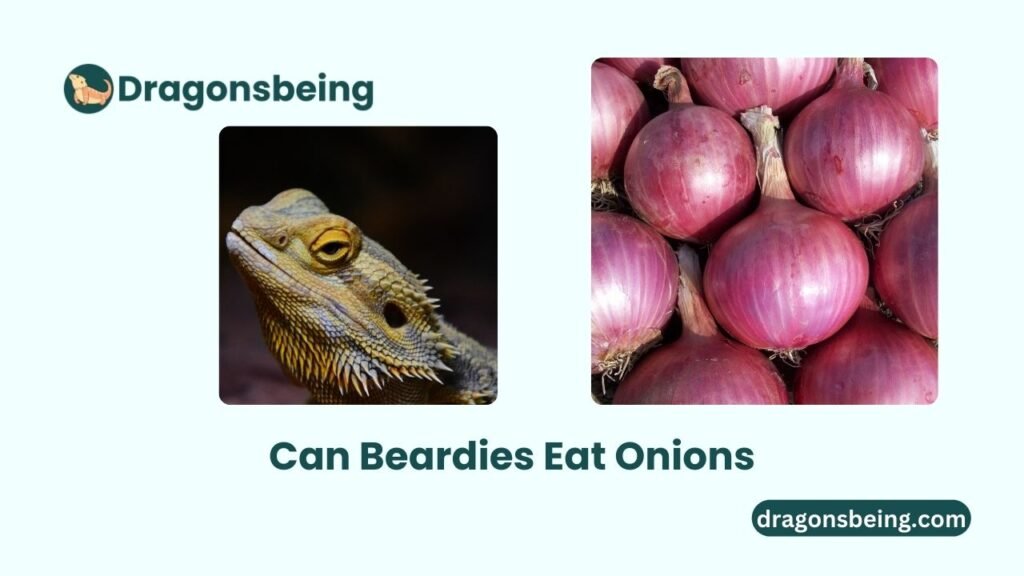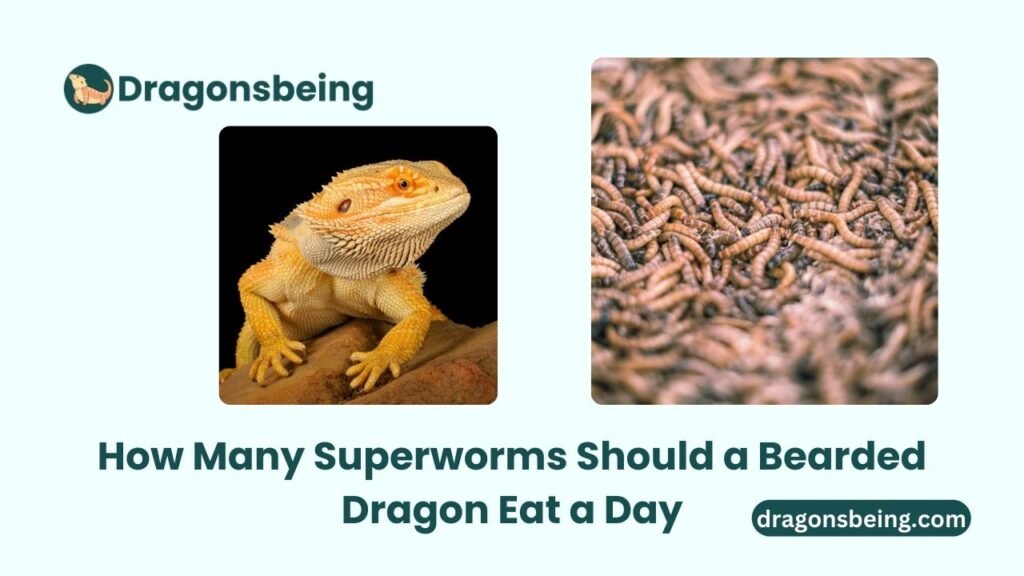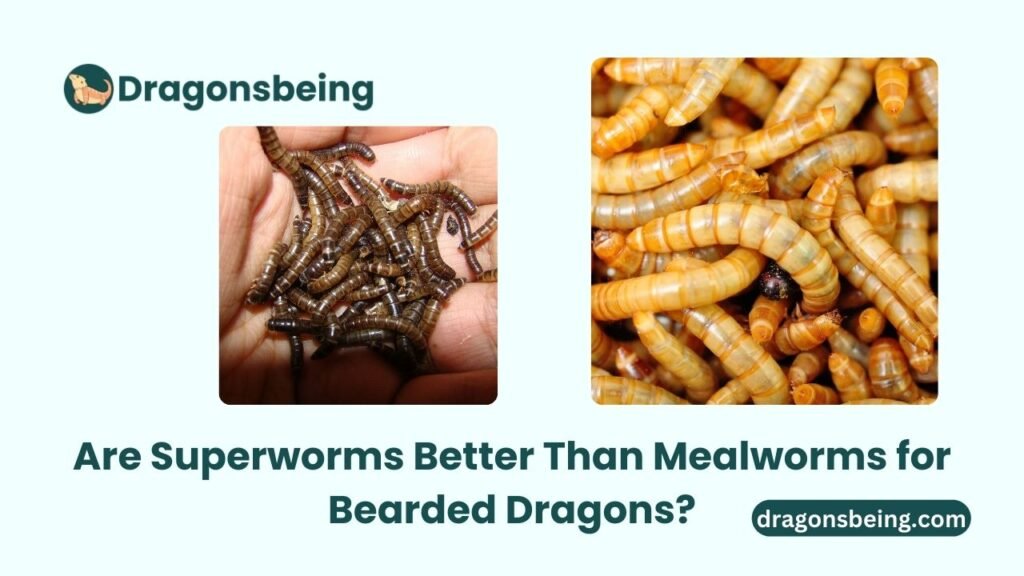Bearded dragons should not eat onions. Onions are toxic to them and can cause serious health issues.
Bearded dragons are popular pets known for their friendly nature and unique dietary needs.
As a responsible owner, understanding what foods are safe for your Beardie is crucial for their well-being. Many owners wonder about various vegetables and fruits, including onions.
While some foods can be beneficial, others pose significant risks. Onions belong to the allium family and contain compounds harmful to reptiles.
These compounds can lead to digestive problems and even more severe health complications.
Educating yourself on safe food choices will help ensure your Bearded dragon lives a long, healthy life. Always consult a veterinarian for specific dietary advice tailored to your pet.
The Nutritional Profile Of Onions
Onions are common vegetables found in many kitchens. They offer a unique flavor and aroma. Their nutritional profile is quite interesting.
Many people wonder if onions are safe for their pets, like Beardies. Understanding what onions contain helps answer this question.
Key Vitamins And Minerals In Onions
Onions are rich in several vitamins and minerals. Here’s a quick look at what they offer:
| Nutrient | Amount per 100g |
|---|---|
| Vitamin C | 7 mg |
| Vitamin B6 | 0.1 mg |
| Potassium | 146 mg |
| Folate | 19 µg |
| Calcium | 18 mg |
These nutrients support overall health. Vitamin C boosts the immune system. Potassium helps with heart health.
Potential Toxins In Onions
While onions have benefits, they also contain harmful substances. These can be dangerous for Beardies.
- Thiosulfate: This compound is toxic to dogs and some reptiles.
- Digestive Issues: Onions can cause stomach upset in pets.
- Hemolytic Anemia: In severe cases, onions can damage red blood cells.
Even small amounts can be harmful. Avoid giving onions to Beardies. Always prioritize their health and safety.
Risks Of Feeding Onions To Beardies
Feeding onions to beardies can lead to serious health problems. Onions contain compounds harmful to these reptiles. Understanding the risks helps keep your pet safe.
Digestive Issues And Toxicity
Onions can cause severe digestive issues in bearded dragons. Their stomachs are not designed for certain foods. Here are some potential problems:
- Vomiting
- Diarrhea
- Abdominal pain
The toxicity of onions is significant. They contain thiosulfate, which is toxic to many animals. This can lead to:
- Red blood cell damage
- Weakness
- Breathing issues
Long-term Health Implications
Feeding onions can have long-lasting effects on your beardie’s health. Continuous exposure can lead to severe conditions. Possible long-term issues include:
| Health Issue | Description |
|---|---|
| Anemia | Reduced red blood cells in the body. |
| Liver Damage | Increased stress on the liver. |
| Weakened Immune System | Higher risk of infections. |
Always prioritize your beardie’s health. Avoid feeding them onions at all costs.
Understanding Reptilian Digestive Systems
Bearded dragons, or beardies, have unique digestive systems. Understanding how they digest food helps us know what to feed them. Certain foods can be harmful, like onions. Knowing their digestive process is crucial for their health.
How Reptiles Process Food
Reptiles digest food differently than mammals. Their systems are slower but more efficient for their needs.
- Slow Metabolism: Reptiles have lower metabolic rates.
- Long Digestive Tract: Their intestines are longer, aiding nutrient absorption.
- Temperature Dependency: Digestion relies on external temperatures.
- Enzyme Production: They produce specific enzymes for breaking down food.
Differences Between Mammals And Reptiles
| Aspect | Mammals | Reptiles |
|---|---|---|
| Metabolism | High | Low |
| Digestive Tract | Shorter | Longer |
| Digestion Speed | Fast | Slow |
| Temperature Regulation | Endothermic | Ectothermic |
These differences matter when considering what beardies can eat. Foods like onions can disrupt their digestive process. Always choose safe, nutritious options for your reptilian friend.
Safe Vegetables For Bearded Dragons
Bearded dragons enjoy a variety of foods. Choosing the right vegetables is important for their health. Some vegetables are safe, while others can be harmful. Knowing which veggies to feed your Beardie is essential.
Recommended Greens And Veggies
Here are some safe vegetables for your bearded dragon:
- Collard Greens – High in calcium.
- Dandelion Greens – Rich in vitamins.
- Mustard Greens – Great for hydration.
- Turnip Greens – Full of nutrients.
- Carrots – Good in moderation.
- Squash – Tasty and safe.
These vegetables provide essential vitamins and minerals. Always chop them into small pieces to prevent choking.
Vegetables To Avoid
Some vegetables are harmful to bearded dragons. Avoid feeding them:
| Vegetable | Reason to Avoid |
|---|---|
| Onions | Can cause blood disorders. |
| Garlic | Toxic in large amounts. |
| Potatoes | High in starch and toxic. |
| Avocado | Contains harmful substances. |
Always read labels and research foods. Feeding safe vegetables keeps your Beardie healthy and happy.
Expert Opinions On Bearded Dragons And Onions
Understanding whether bearded dragons can eat onions is crucial. Expert opinions vary, but many agree on the risks. Onions can be harmful to your beardie. Let’s explore insights from veterinarians and herpetologists.
Veterinarian Recommendations
Veterinarians often caution against feeding onions to bearded dragons. Here are their main points:
- High Toxicity: Onions contain compounds that can harm reptiles.
- Digestive Issues: Onions may cause stomach problems.
- Long-Term Damage: Regular consumption can lead to serious health issues.
Many vets recommend a diet rich in leafy greens and insects. This ensures beardies get necessary nutrients without risks.
Herpetologist Insights
Herpetologists study reptiles closely. Their findings on onions are clear:
| Aspect | Details |
|---|---|
| Natural Diet: | Bearded dragons do not eat onions in the wild. |
| Health Risks: | Onions can lead to organ damage over time. |
| Recommended Foods: | Leafy greens, squash, and crickets are safer options. |
Experts agree that sticking to a natural diet is best. This keeps your beardie healthy and happy.
Alternatives To Onions For Flavor And Nutrition
Onions are unsafe for Beardies. They can cause health issues. Luckily, there are many safe and tasty options. These alternatives provide both flavor and nutrition. Let’s explore some healthy treats and ways to spice up your Beardie’s diet.
Healthy Treats For Your Pet
Healthy treats make your Beardie’s meals exciting. Here are some safe options:
- Carrots: Crunchy and sweet, great for chewing.
- Bell Peppers: Colorful and packed with vitamins.
- Sweet Potatoes: Nutritious and naturally sweet.
- Zucchini: Low in calories and hydrating.
- Green Beans: A good source of fiber and vitamins.
These treats can be served fresh or cooked. Always chop them into small pieces. This helps prevent choking.
Spicing Up Your Beardie’s Diet
Variety keeps your Beardie’s meals interesting. Try these flavor boosters:
- Herbs: Basil and parsley can enhance flavor.
- Fruit: Small pieces of banana or berries add sweetness.
- Protein: Cooked chicken or turkey can be mixed in.
- Commercial Treats: Look for Beardie-friendly snacks.
| Food Item | Benefits |
|---|---|
| Carrots | Good for vision and teeth. |
| Bell Peppers | High in vitamin C. |
| Sweet Potatoes | Rich in fiber and antioxidants. |
| Zucchini | Low-calorie and hydrating. |
| Green Beans | Great source of vitamins. |
These tasty alternatives help maintain a balanced diet. Your Beardie will love the variety!
Reading The Signs: Symptoms Of Poor Diet In Beardies
Bearded dragons, or Beardies, thrive on a balanced diet. A poor diet can lead to serious health issues. Recognizing the signs of nutritional deficiencies is crucial. Early detection helps prevent long-term damage.
Common Health Issues
Beardies show various symptoms when their diet lacks essential nutrients. Here are some common health problems:
| Symptom | Possible Cause |
|---|---|
| Weight Loss | Insufficient protein or calories |
| Weakness | Low calcium intake |
| Dry Skin | Dehydration or lack of vitamins |
| Lethargy | Malnutrition or illness |
| Digestive Issues | Improper food choices |
Monitor your Beardie’s behavior closely. Changes in appetite or activity level are red flags. A balanced diet is key to their health.
When To Consult A Vet
Consult a veterinarian if you notice any of these symptoms:
- Persistent weight loss
- Severe lethargy
- Unusual stools or lack of bowel movement
- Skin shedding problems
- Loss of appetite lasting more than a few days
A vet can provide guidance on diet adjustments. Regular check-ups keep your Beardie healthy and happy. Don’t wait for symptoms to worsen.
Creating A Balanced Diet Plan
A balanced diet is vital for your Bearded Dragon’s health. Proper nutrition impacts growth, mood, and overall wellness. Certain foods can benefit them, while others can cause harm. Understanding what to feed them is essential.
Designing A Weekly Menu
Creating a weekly menu helps ensure a variety of nutrients. A mix of vegetables, fruits, and protein sources is best. Here’s a simple menu example:
| Day | Vegetables | Fruits | Protein Source |
|---|---|---|---|
| Monday | Collard Greens | Blueberries | Crickets |
| Tuesday | Mustard Greens | Strawberries | Mealworms |
| Wednesday | Bell Peppers | Mango | Dubia Roaches |
| Thursday | Carrots | Kiwi | Earthworms |
| Friday | Squash | Raspberries | Superworms |
| Saturday | Broccoli | Peaches | Crickets |
| Sunday | Leafy Greens | Apples | Mealworms |
Rotate foods weekly. This prevents boredom and provides diverse nutrients. Avoid giving onions. They are toxic to Beardies.
Supplements And Vitamins
Supplements boost your Beardie’s diet. They help fill gaps in nutrition. Consider these options:
- Calcium Powder: Sprinkle on food twice a week.
- Multivitamins: Use once a week for essential nutrients.
- Vitamin D3: Important for calcium absorption.
Always consult a vet before starting any supplements. They can guide appropriate dosages. A balanced diet keeps your Beardie healthy and happy.
Conclusion: Best Practices For Bearded Dragon Care
Bearded dragons need a balanced diet to thrive. Understanding safe foods is crucial. Owners must know what to avoid, including onions.
Summary Of Dietary Guidelines
Bearded dragons have specific dietary needs. Here are the best practices:
| Food Type | Examples | Frequency |
|---|---|---|
| Leafy Greens | Kale, Collard Greens | Daily |
| Fruits | Blueberries, Strawberries | 2-3 times a week |
| Insects | Crickets, Mealworms | Every other day |
| Protein Sources | Chicken, Eggs | Occasionally |
| Foods to Avoid | Onions, Garlic | Never |
Always wash vegetables and fruits before feeding. Chop them into small pieces. This helps prevent choking.
Continued Education For Pet Owners
Staying informed is essential for pet care. Here are some ways to keep learning:
- Read books on bearded dragon care.
- Join online forums for pet owners.
- Watch educational videos on YouTube.
- Consult with a veterinarian regularly.
Knowledge about bearded dragon diets prevents health issues. Always seek out new information. Care for your pet with love and knowledge.
Frequently Asked Questions
Can Beardies Eat Onions Safely?
Onions are toxic to bearded dragons and should never be fed to them.
What Foods Are Safe For Beardies?
Safe foods include leafy greens, bell peppers, and insects like crickets and mealworms.
What Happens If Beardies Eat Onions?
Onion consumption can lead to serious health issues, including gastrointestinal distress and blood problems.
How To Treat Beardies After Onion Exposure?
Immediate veterinary attention is crucial if a bearded dragon consumes onions.
Can Beardies Eat Other Vegetables?
Yes, many vegetables are safe, like zucchini and squash. Always research before introducing new foods.
What Are Signs Of Onion Poisoning In Beardies?
Signs include lethargy, vomiting, and difficulty breathing. Seek veterinary help right away if observed.
Conclusion
Feeding your beardie the right foods is crucial for their health. Onions should always be avoided, as they can be toxic to reptiles. Stick to safe vegetables and fruits to keep your pet happy and thriving. Always research before introducing new foods to ensure your beardie stays healthy and safe.

Hi, I’m Dr. Michelle Mayers, a veterinary professional with a deep passion for animal health and well-being. Over the years, I’ve dedicated my life to caring for animals and helping pet owners better understand their furry, feathered, or scaly companions. On my blog, Dragonsbeing, I share insights, tips, and stories that aim to educate, inspire, and connect with fellow animal lovers. Join me at Dragonsbeing as we explore the fascinating world of veterinary care and celebrate the special bond between humans and animals!


